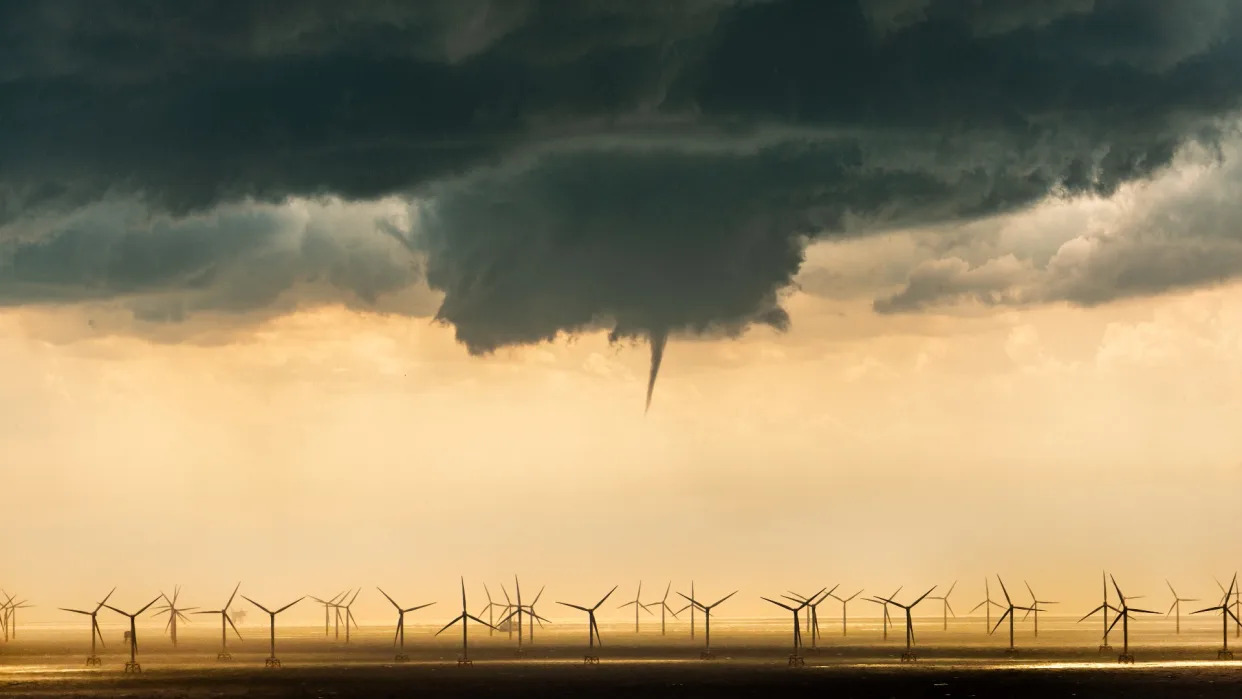The Week Staff
Thu, September 14, 2023

Clouds gather over a UK wind farm
It can feel as if Britain isn't much good at anything any more, but when it comes to the offshore wind industry, this country is a true "global powerhouse", said Ben Marlow in The Daily Telegraph.
The UK's 44 offshore sites – made up of over 2,500 vast turbines up to 260 metres high – accounted for 27% of its electricity generation last year. In terms of installed capacity, Britain, with its long coastline, shallow sea beds and good wind speeds, is second only to China. But this leading position is now under threat, "thanks to the absolute shambles that was the latest auction for renewable contracts".
Seven projects were eligible, with potential to power an estimated eight million homes; but in the event, not a single bid was submitted, for the simple reason that the price cap for the auction was set too low, at £44/MWh in the 2012 prices that are used in such contracts. (This represents the maximum unit price the developers could bid to receive for the electricity they produce.) Given the soaring cost of everything from steel and labour to debt, that just wasn't feasible.
A real embarrassment
The botched auction is a real embarrassment for a government that has made offshore wind the backbone of its green energy policy, said Max Mitchell on Reaction. Ministers have committed to increasing the amount of electricity the grid receives from offshore sites from 14GW now to 50GW in 2030; and this is central to its target of decarbonising electricity production by 2035.
Even if a better deal can be agreed for the next auction, the zero bids represent a "significant setback" for that timeline. Ministers can't even say they weren't warned: the Swedish company Vattenfall recently cancelled work on a new windfarm off Norfolk, citing its 40% increased costs. Industry leaders had stressed before the auction that they'd need higher subsidies to offset the impact of inflation.
An inconvenient truth
We've been sold the idea that offshore wind energy is cheap and secure as well as green; but this debacle "highlights an inconvenient truth", said The Daily Telegraph: building the farms and getting the energy to the grid is very expensive, and reliant on subsidies (funded via energy bills). Consumers are entitled to ask if they're getting good value for money.
True, wind power is not cheap, but it is still cheaper than gas, said Will Dunn in The New Statesman, and likely to remain so for some years. And if voters baulk at the idea of foreign-owned operators receiving ever-larger subsidies, there are ways of assuaging this, said Nathalie Thomas in the FT. The firms could, for instance, be obliged to source more components in the UK. The bottom line, though, is that if it is to hit its renewables targets, the Government will have to move on price.
No comments:
Post a Comment